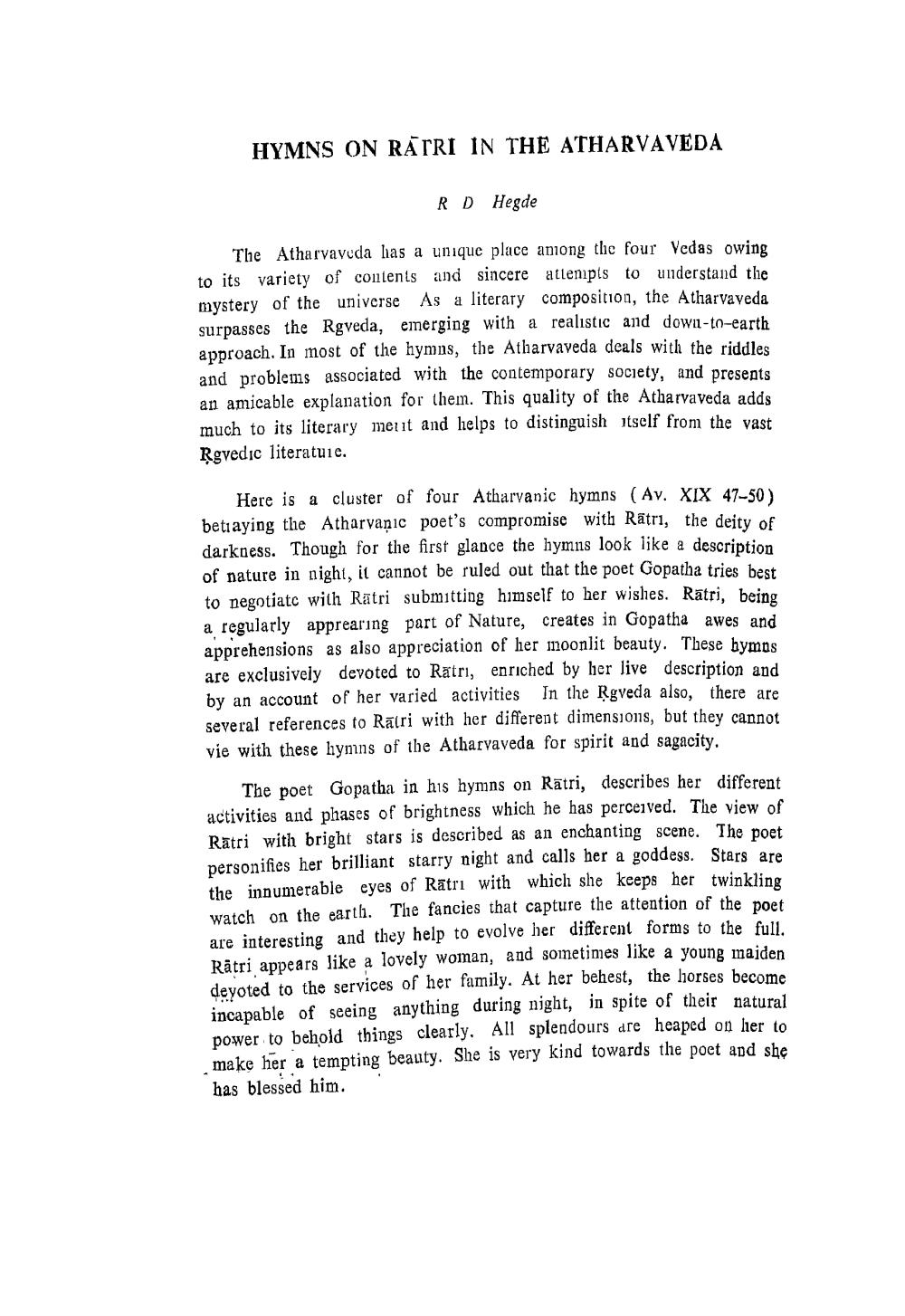________________
HYMNS ON RĀTRI IN THE ATHARVAVEDA
RD Hegde
The Atharvavoda las a unique place among the four Vedas owing to its variety of contents and sincere atlenipts to understand the mystery of the universe As a literary composition, the Atharvaveda surpasses the Rgveda, emerging with a realistic and down-to-earth approach. In most of the hymns, the Atharvaveda deals with the riddles and problems associated with the contemporary society, and presents an amicable explanation for them. This quality of the Atharvaveda adds much to its literary meut and lielps to distinguish itself from the vast Rgvedic literatuie.
Here is a cluster of four Atharvanic hymns (Av. XIX 47-50) betraying the Atharvanic poet's compromise with Rātri, the deity of darkness. Though for the first glance the hymnis look like a description of nature in night, it cannot be ruled out that the poet Gopatha tries best to negotiatc with Ratri submitting himself to her wishes. Rātri, being a regularly apprearing part of Nature, creates in Gopatha awes and apprehensions as also appreciation of her inoonlit beauty. These hymus are exclusively devoted to Rātri, enriched by her live description and by an account of her varied activities In the Rgveda also, there are several references to Rātri with her different dimensions, but they cannot vie with these lymns of the Atharvaveda for spirit and sagacity.
The poet Gopatha in his hymns on Rātri, describes her different activities and phases of brightness which he has perceived. The view of Ratri with bright stars is described as an enchanting scene. The poet personifies her brilliant starry night and calls her a goddess. Stars are the innumerable eyes of Rātri with which she keeps her twinkling watch on the earth. The fancies that capture the attention of the poet are interesting and they help to evolve her different forms to the full. Rātri appears like a lovely woman, and sometimes like a young maiden deyoted to the services of her family. At her behest, the horses become incapable of seeing anything during night, in spite of their natural power to behold things clearly. All splendours are heaped on lier to make her a tempting beauty. She is very kind towards the poet and she has blessed him.




